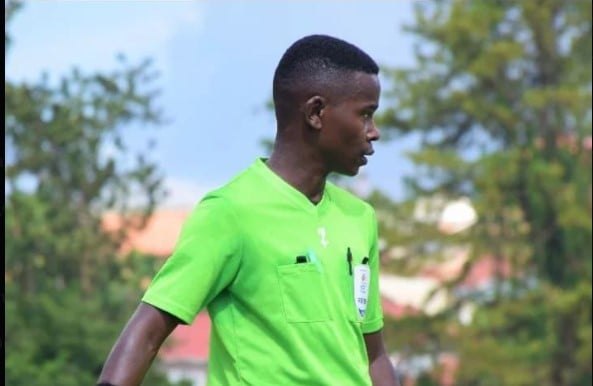Medical emergencies in football: A call for reform in safety awareness

Assistant referee Pater Kabugo during the game between SC Villa and UPDF at the Muteesa II Stadium in Wankulukuku
What you need to know:
- Football as a contact sport is a potentially dangerous game should safety not be taken seriously for the players, coaches, and match officials.
The Uganda football fraternity is mourning the death of assistant referee Peter Kabugo who collapsed around the 72nd minute of the Uganda Premier League game between SC Villa and UPDF at Muteesa II Stadium, Wakuluku.
Sorrow, shock, and sadness struck the football devotees upon receipt of news that Peter didn’t make it as he was pronounced dead upon arrival at Bismillah Hospital.
The football fraternity has expressed their tribute to the late assistant referee with all games in Finance Trust Bank FUFA Women Super Leagues observing a moment of silence before kickoff as we await the official postmortem report to establish the actual cause of death.
Football as a contact sport is a potentially dangerous game should safety not be taken seriously for the players, coaches, and match officials.
Medical emergencies ranging from common injuries to life-threatening situations can strike at any point. Special attention to safety in the field of play is paramount in mitigating the reoccurrence of such incidents.
The need is urgent, and the time is now for the whole football fraternity to take cognizance of the crucial role of safety as a pivotal component of sporting culture while advocating for the eradication of serious medical emergencies premised on the fact that most such incidents are preventable.
Inculcating safety in all forms of player training and development, building a culture that promotes personal accountability, and a duty of care to act with reasonable precautions for others’ safety, extending to safeguarding others against every conceivable risk both in training and during official matches.
Developing a sport-safe practice checklist for players, coaches, and match officials prior to each training and match shall contribute to the maintenance of a safe working environment for all. The checklist could be as simple as assessing and establishing the weather and temperature of the day, the status of the field, and the playing surface and establishing whether it is fit for purpose.
In addition to the presence of qualified medical teams, and first aiders, mandatory and periodic basic first-aid training for all footballers, coaches, and match officials needs to be implemented to equip each player, coach, and match official with the necessary basic first-aid training to be able to identify an injured or ill player, recognize the signs and symptoms of life-threatening conditions and administer potential first aid assistance like Cardiopulmonary Resuscitation (CPR).
These basic first aid skills shall build confidence in the players, coaches, and match officials to quickly handle situations of medical emergencies on the pitch ensuring that appropriate care is provided until a professional Health worker arrives and assumes the responsibility.
Knowledge of basic first aid in football is extremely important given the intensity of the game, in most situations a quick response to a medical emergency by the right skilled personnel makes a big difference. Rest in peace assistant Referee Peter Kabugo,
Grace Mark Tusubira, Policy and Advocacy Manager at the Uganda Red Cross Society.



